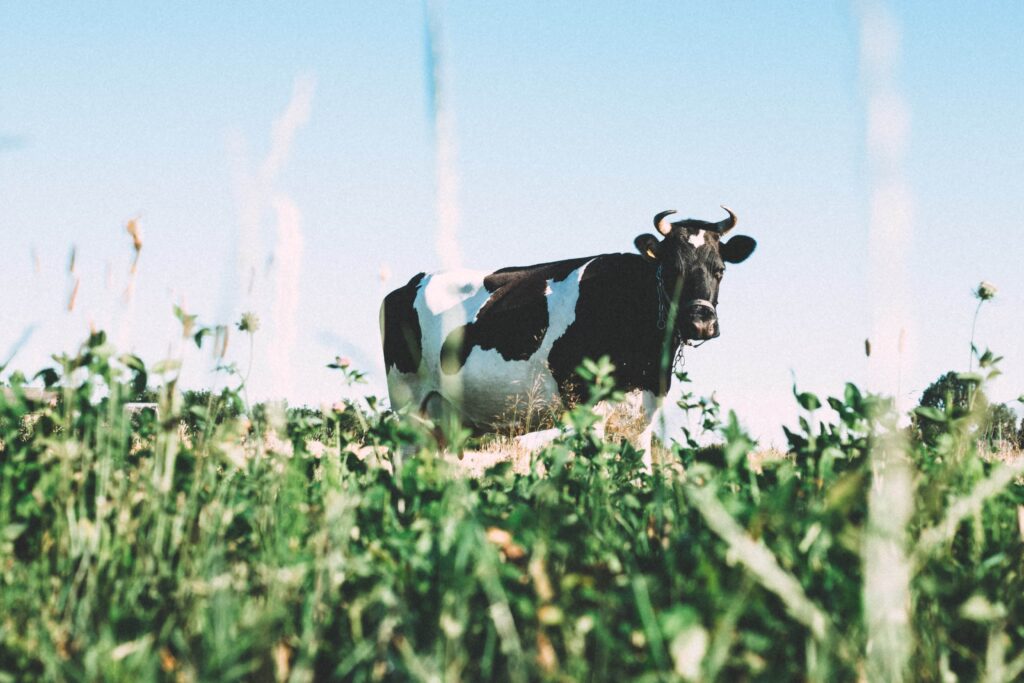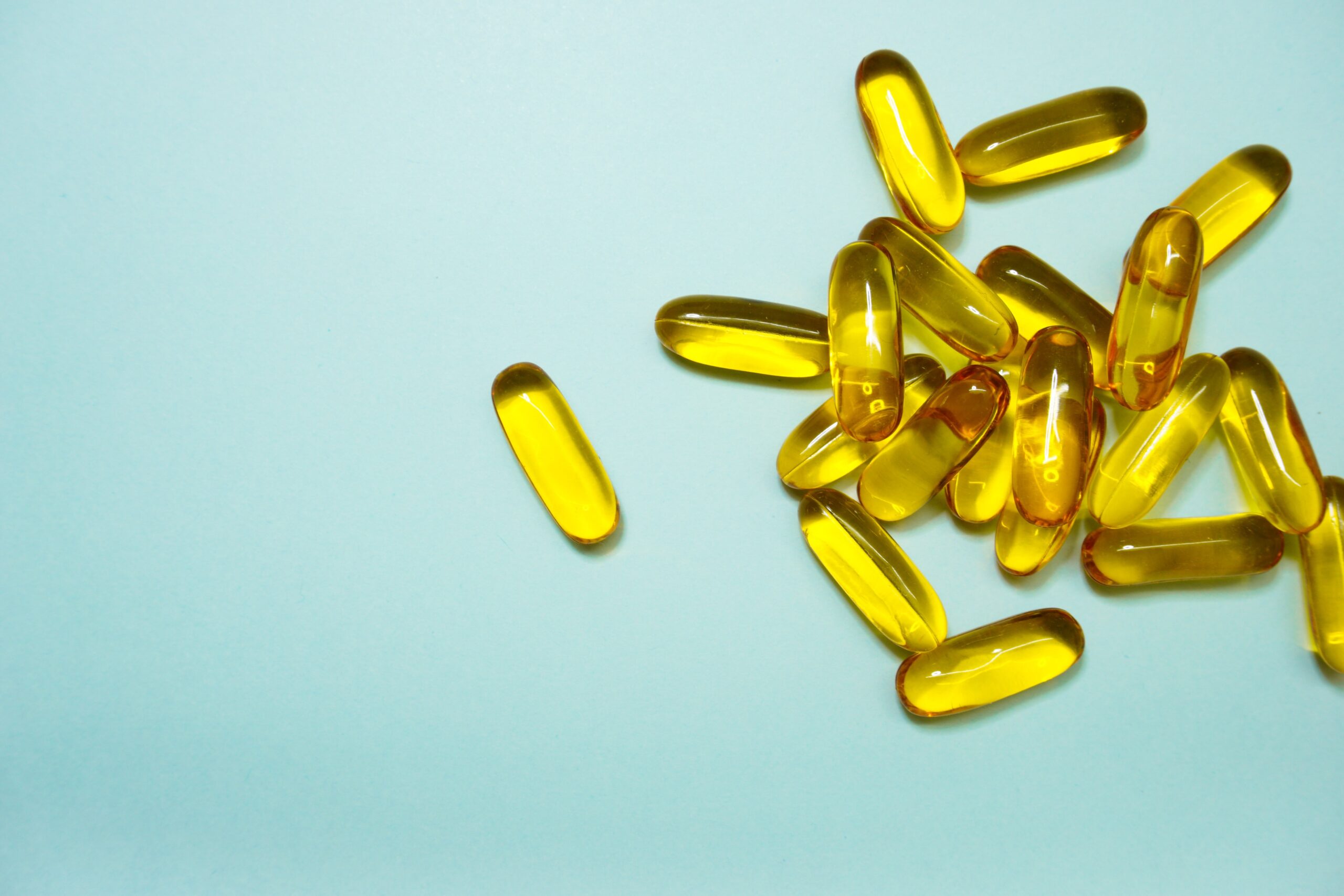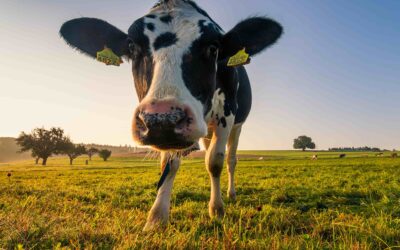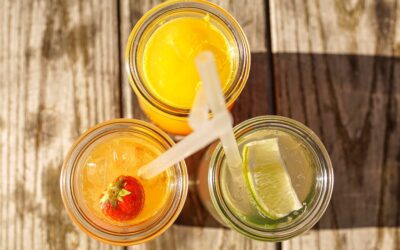Vitamin B12 is an essential nutrient that, in nature, can only be found in foods of animal origin. B12 is at the core of the anti-vegan argument – after all, if animals are the only source of B12, how could a vegan get any? As someone who follows a vegan diet, ‘what about B12?’ is something I’ve been questioned on multiple times – and I’m sure I’m not alone.
I decided to investigate what B12 is, why we need it, and how vegans get it.
What is vitamin B12?
Every cell in our body needs vitamin B12. It’s needed to make red blood cells that carry oxygen around our bodies, to make DNA, and for nerves to work properly [1, 2]. B12 deficiency, if not treated, can lead to serious medical problems, including: muscle weakness, trouble walking, heart palpitations, vision loss, memory loss, depression, and even death [3, 4].
So if B12 is important for our health, how do we get it?
Where do we get vitamin B12 from?
We get vitamin B12 (and most essential vitamins) from food. B12 is a little different, as it’s the only vitamin naturally found in animal products [5]. But vitamin B12 is actually made by bacteria – animals cannot produce it themselves [6]. So you might wonder, if B12 comes from bacteria, why eat animals to get it? And how do plant-eating animals (like cows and pigs) get the B12 they need?
When animals eat dirt from grazing and drink dirty water, they ingest the B12-producing bacteria (and a little B12) that lives in the soil. If we did this, we’d get some B12 too. In fact, we used to get B12 from water before it was treated (water treatment aims to kill bacteria – it doesn’t differentiate between disease causing and B12 producing types) [9]. It would be so easy if we could still get B12 from water, but modern day water treatments are vital to stop the contraction of many dangerous diseases [10].
Let’s take a closer look at how we get B12; after B12-producing bacteria is eaten by an animal, it makes its way to the intestine where it sets up shop, making and absorbing B12. When people eat the animal flesh, B12 is released from the protein when it hits the stomach acid. This free B12 moves down into the intestine and is absorbed. The B12 continues it’s journey to its final destination: the liver, where it’s stored.

Like animals, we do have a little B12-producing bacteria in our gut – so why can’t we make our own? Well, we can! But there’s a catch – those bacteria live in our large intestine, but our bodies only absorb B12 in the small intestine (which comes before the large intestine). Animals on the other hand don’t have this problem. They store the bacteria and absorb B12 in the same part of their gut. This is how animals can survive on eating just veggies alone, and we can’t [8].
If you’ve decided to ditch animal products, you might wonder how you’ll get the B12 you need. Let’s take a look at how vegans and vegetarians can get B12.
What about vegans and vegetarians?
If you’re thinking of cutting out animal products from your diet, fear not! B12 can be taken as a supplement and is found in many fortified plant-based foods [11].
To help get an idea of the amount of B12 in a range of foods, I’ve put together Figure 1. You can see (from Figure 1) that depending on what’s eaten, anyone could be falling short on their B12 needs. The reality is, you don’t have to be vegan to be low on B12. One study found that nearly 40% of people were B12 deficient – regardless if they were vegetarian or not [12].
It’s worth noting that people with gut or stomach diseases like Crohn’s disease or atrophic gastritis, immune system disorders like lupus or pernicious anaemia, alcohol misuse or people who take certain medications, can be susceptible to B12 deficiencies [3].
The amount of B12 you need daily will vary depending on your age and whether you’re pregnant or breastfeeding. It’s recommended that adults need between 1.5 – 2.4 mcg of B12 a day [13, 14]. If you’re vegan or vegetarian you may decide that a supplement is right for you. After all, it’s an easy solution and you may prefer not to eat the few plant-based foods with B12, as the majority have to be fortified and processed.
There’s a lot of conflicting research when it comes to deciding how much B12 to supplement with. The good news is, there doesn’t seem to be much evidence that you can take too much B12 – if you do, all that’s likely is that you’ll have some expensive pee [1]. So how much B12 should you take? It’s thought that we use up around 1 mcg of B12 a day, so that needs to be replaced. The reason it’s recommended we eat 2.4 mcg a day is because the absorption rate is pretty bad (around 50%). For biochemical reasons I won’t go into here, when you take a B12 supplement, the absorption rate is even lower. If you believe you’re not getting enough B12, it’s recommended to take supplements of 50-100 mcg a day or 2000 mcg a week [16]. Remember, your needs will be unique to you, so it’s always good practice to do your own research before taking a supplement and consult a health care professional if you have any concerns.
Final comments
The bottom line is that vitamin B12 is essential for our health and you don’t need to eat animal products to get it. However, although anyone can be deficient, vegans are at higher risk [17]. With more and more of us adopting a vegan diet [18] (and enjoying its many health benefits), it’s vital to be mindful of B12; but whatever you choose to eat, take steps to ensure you’re getting enough.
Hopefully this article has been helpful if you’ve ever wondered what B12 is, why we need it, and how we get it.
*Please note: do not take information in this article as medical advice. If you have a health concern, you should consult a healthcare professional.





0 Comments